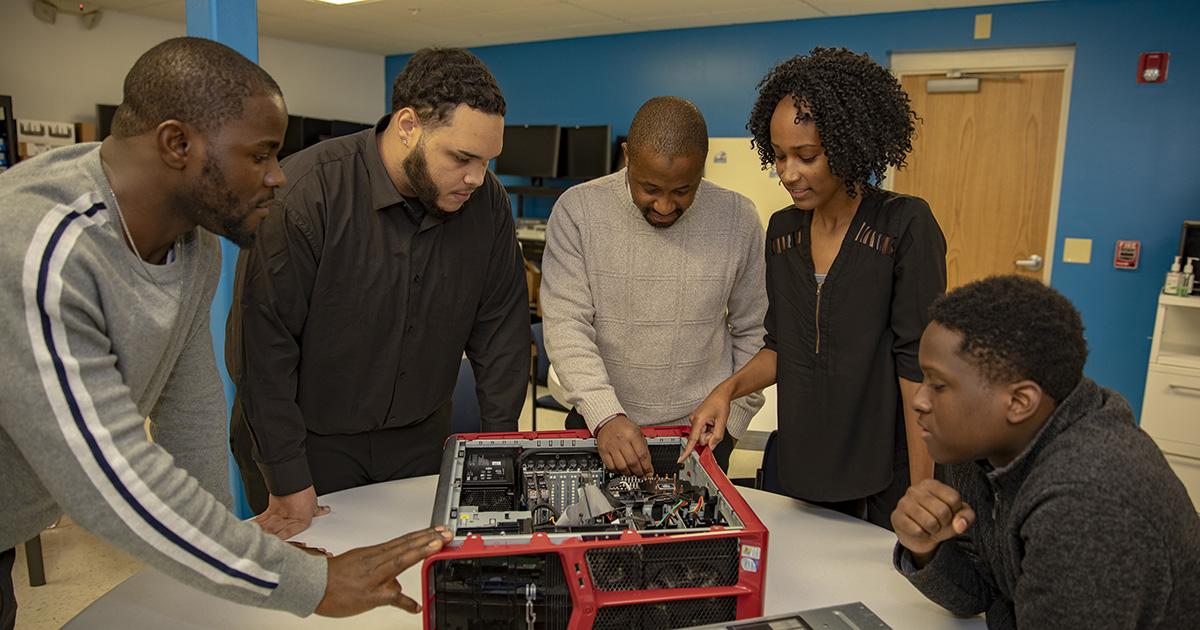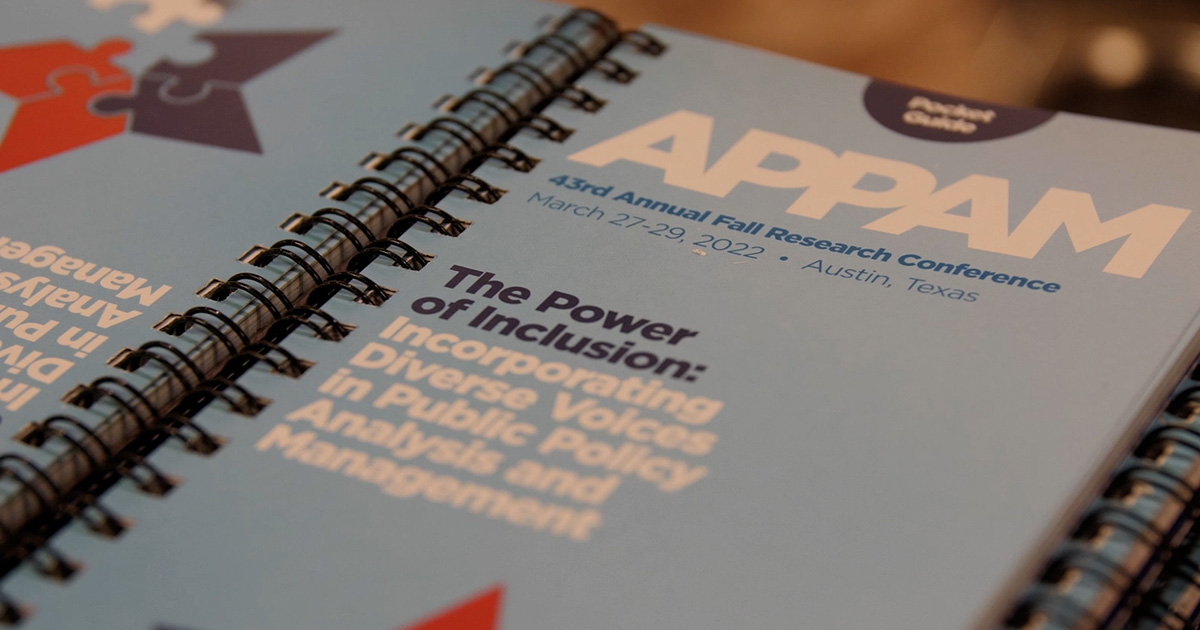Top 15 MDRC Releases in 2022

In 2022, MDRC posted more than 120 publications, videos, and podcast episodes—offering evaluation results, profiles of innovative programs, and evidence-backed advice for policymakers and practitioners. Here are 15 of the most popular.
 |
Supporting College Students During the Pandemic, by Colleen Sommo, Marco Lepe, and Alyssa Ratledge (January)MDRC’s Scaling Up College Completion Efforts for Student Success (SUCCESS) aims to help more low-income students and students of color graduate by combining proven components into an integrated three-year program. This brief describes the model, the study, and adaptations to the COVID-19 pandemic, and offers some early findings. |
 |
Learning More by Measuring More: Building Better Evidence on Pre-K Programs by Assessing the Full Range of Children’s Skills, by Meghan McCormick and Shira Kolnik Mattera (February)Recent research has highlighted a pattern of “fadeout” of positive academic effects of pre-K as children progress into elementary school. This brief looks at examples of less frequently measured types of skills that pre-K programs may help boost in the short term and sustain over the longer term. |
 |
Putting Lived Experience at the Center of Data Science, by Edith Yang and Alissa Stover (February)MDRC’s Center for Data Insights has collaborated with two of MDRC’s long-standing program partners, Per Scholas and the Center for Employment Opportunities, to create and implement tools that can more fully capture participants’ lived expertise. This brief summarizes lessons learned from these partnerships. |
 |
Employment and Earnings Effects of the WorkAdvance Demonstration After Seven Years, by Henry Kanengiser and Kelsey Schaberg (March)Sectoral strategies train people for industries with strong local demand. This report summarizes the Year 7 findings of an evaluation of WorkAdvance, a sectoral training initiative launched in 2011. Overall, the results show that sector programs can increase earnings in the longer term and can lead to career advancement gains. |
 |
On Ramp to College: Dual Enrollment Impacts from the Evaluation of New York City’s P-TECH 9-14 Schools, by Michelle Dixon and Rachel Rosen (April)The New York City P-TECH 9-14 model offers accelerated high school course work, early college, and work-based learning experiences. P-TECH students are 30 percentage points more likely to take college courses in high school than comparison group students. They also earn 6.4 more college credits by the end for their fourth year. |
 |
Evidence First Podcast: Considerations for Jurisdictions Seeking Pretrial Reform (April)In this episode, Leigh Parise talks with Brit Henderson, a research associate at MDRC’s Center for Data Insights and Center for Criminal Justice Research, about the effectiveness of pretrial system reforms and the challenges jurisdictions face in implementing them. |
 |
Video: MDRC at the Association for Public Policy Analysis and Management (APPAM) Research Conference (April)MDRC was well-represented at the Association for Public Policy Analysis and Management (APPAM) Research Conference in March 2022 in Austin, Texas. MDRC Vice President John Martinez, who served as the president of APPAM, was the lead organizer of the event. This four-minute video features MDRC staff members discussing the importance of inclusion for advancing equity in social policy research, which was the theme of the conference. |
 |
Exploring the Value of Predictive Analytics for Strengthening Home Visiting: Evidence from Child First, by Samantha Xia, Zarni Htet, Kristin Porter, and Meghan McCormick (May)This brief presents results from a proof-of-concept exercise that examined the potential benefits of using predictive analytics to improve service delivery by Child First, a program that provides therapeutic support to families with young children. The information may be useful for other organizations interested in implementing these cutting-edge tools. |
 |
Video: Introducing the Reconnecting Youth Project | MDRC (May)In this four-minute video, Louisa Treskon, a senior associate at MDRC, introduces the Reconnecting Youth Project, which developed two interactive web tools that can be used to inform a learning agenda focused on reconnecting youth to school and work. |
 |
“What Works” for Community College Students? A Brief Synthesis of 20 Years of MDRC’s Randomized Controlled Trials, by Michael J. Weiss and Howard Bloom (June)What works to help community college students progress academically? This brief synthesizes 20 years of rigorous research by MDRC, presenting new evidence about key attributes of community college interventions that are positively related to larger impacts on students’ academic progress. |
 |
A Comparison of Approaches Informed by Procedural Justice and Traditional Enforcement in the Procedural Justice-Informed Alternatives to Contempt Demonstration, by Melanie Skemer, Jennifer (Jenny) Hausler, Olivia Williams, Louisa Treskon, and Jacqueline Groskaufmanis (June)The Procedural Justice-Informed Alternatives to Contempt (PJAC) project integrated procedural justice (the idea of fairness in processes) into enforcement at six child support agencies. This report compares the service and enforcement experiences of parents randomly assigned to receive PJAC services with those of parents assigned to business as usual. |
 |
Supporting Black Women’s Success in Postsecondary Education, by Michael Stevens Williams and Marjorie Dorimé-Williams (July)Although policymakers and institutions have increasingly disaggregated college completion data by race and gender to create targeted forms of support, the complex and intersecting challenges that Black women face in college often remain overlooked. This brief highlights opportunities to address the challenges Black women face in postsecondary education. |
 |
The Three Ingredients of Successful Data Projects, by Edith Yang (September)The Center for Data Insights at MDRC has partnered with many organizations to develop and execute a variety of data projects. Important lessons have emerged from this collaborative work about the three ingredients essential to successful data projects. This brief discusses those ingredients. |
 |
Video: MyGoals for Employment Success: A Promising Coaching Model (October)In this six-minute video, Gloriela Iguina-Colón, a research analyst at MDRC, describes MyGoals for Employment Success, an innovative employment coaching program intended to help recipients of federal housing subsidies who are not employed find work, build careers, and advance toward greater self-sufficiency. |
 |
Evidence First Podcast: Is Individualized Instruction the Answer to the Pandemic’s Unfinished Learning? A Discussion with Andy Rotherham and William Corrin (November)The pandemic has had devastating effects on students’ learning. One strategy to help students is individualized (or personalized) instruction, such as tutoring. In this episode, Leigh Parise talks with Andy Rotherham, cofounder of Bellwether, and William Corrin, the director of MDRC’s K-12 Education policy area, about the promise, challenges, and politics of implementing individualized instruction. |





